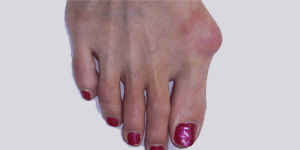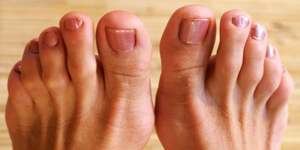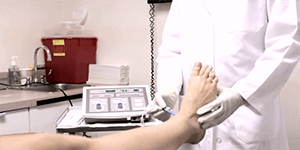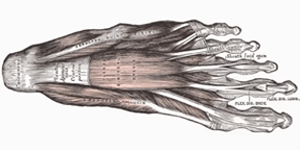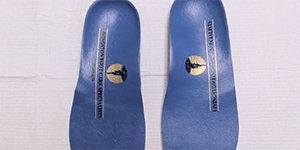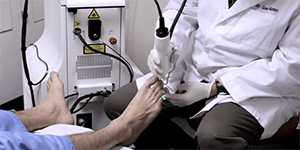Diabetic Ulcers
Ulcers can form on anyone’s foot. However, diabetic patients have a much greater risk of developing ulcers on their feet. An ulcer is an open sore or wound that most commonly occurs on the bottom of the foot or on pressure points such as hammertoes or bunions. The diabetic foot ulcer is more common because of such risk factors as a lack of feeling in the foot, poor circulation (vascular disease), and the presence of neuropathy (nerve damage) due to the nerves in the foot being damaged by elevated blood glucose. Anyone with foot deformities such as hammertoes or bunions can be a candidate for the development of ulcers. These conditions among others impede the body’s ability to heal once there is a break in the skin due to irritation.
Once diabetic ulcers form it is imperative that professional medical care be rendered to reduce the risk of infection and to promote healing. Infection of an ulceration is one of the primary causes of amputations of the foot and leg. In addition to seeing the podiatrist, the diabetic patient must see the general physician to have glucose levels monitored.
Taking measures to prevent a diabetic foot ulcer are most important. Anything too tight around the legs such panty hose, girdles or knee-high stockings should not be worn. It is imperative that people not attempt to remove calluses, corns or warts by themselves. Commercial, over-the-counter preparations to remove warts or corns should be avoided because they can burn healthy skin and cause ulcerations. Other tips to prevent the formation of diabetic ulcers on your feet is to wash your feet daily and dry carefully between the toes; moisture can lead to fungal infections which can cause cracks in the skin. Wear thick, soft socks to help cushion the feet. Make sure your shoes are comfortable. It is not a good idea to “break in your shoes;” shoes should be comfortable from the start. Improperly fitted shoes can contribute to bone and joint disorders and cause pressure points on the feet. Do not walk barefoot even in your own home. Walking barefoot increases the possibility of sustaining cuts which can lead to infections. Do not use alcohol in excess. Alcohol can contribute to neuropathy.
Early treatment and recognition of the potential of ulcer formation is the key to preventing irreversible complications. The foot specialists at Livingston Foot Care are specially trained in the management of ulcerations and are associated with The Wound Care Center at St. Joseph’s Hospital.
